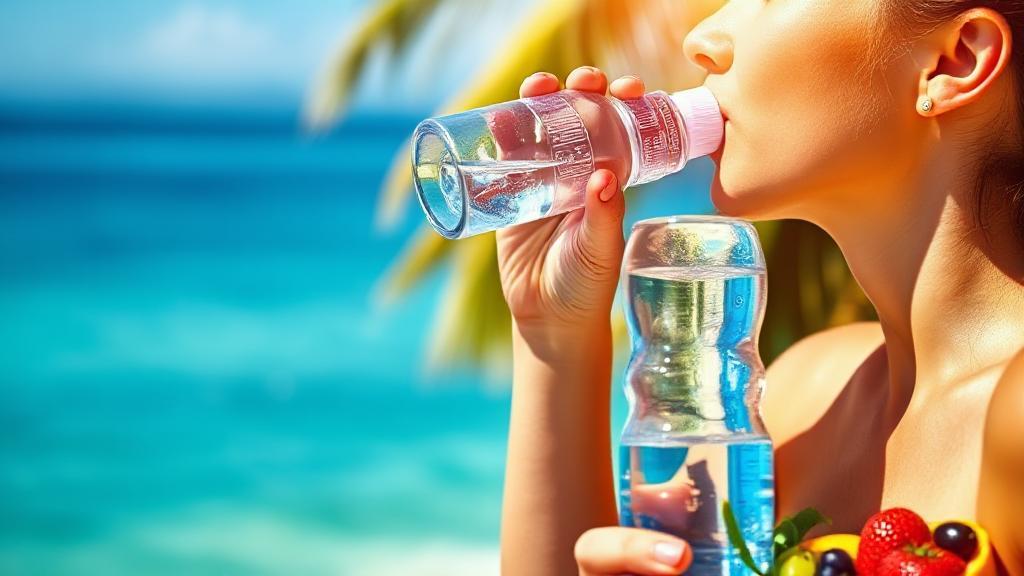Effective Ways to Prevent Dehydration and Stay Hydrated
Proper hydration is fundamental to health, supporting everything from temperature regulation and nutrient transport to cognitive function and joint lubrication. Yet, many people underestimate their daily fluid needs, leading to mild or even severe dehydration. This article combines expert guidance and practical tips to help you prevent dehydration and maintain optimal hydration levels.
Understanding Dehydration
Dehydration occurs when your body loses more fluids than it takes in, resulting in an insufficient amount of water to carry out normal bodily functions. Even mild dehydration can cause fatigue, headaches, and impaired concentration, while severe dehydration can be life-threatening—especially for children, older adults, and those with chronic illnesses.
Common causes of dehydration include:
- Not drinking enough water
- Excessive sweating (due to physical activity or hot weather)
- Illnesses causing vomiting or diarrhea
- Certain medical conditions (e.g., diabetes, kidney disease)
- Medications such as diuretics
For a deeper dive into daily hydration needs, see How much water you should drink each day: daily hydration guidelines explained.
Why Hydration Matters
Water is essential for:
- Regulating body temperature
- Lubricating joints
- Transporting nutrients and oxygen
- Removing waste products
- Supporting cognitive and digestive function
Learn more about the importance of hydration at the CDC - Water & Nutrition.
Recognizing the Signs of Dehydration
Early recognition is key. Common symptoms include:
- Thirst (a late sign)
- Dry mouth and chapped lips
- Dark yellow or amber urine
- Infrequent urination
- Fatigue or lethargy
- Dizziness or lightheadedness
- Headache
Severe symptoms such as confusion, rapid heartbeat, or fainting require immediate medical attention. For more, see the Mayo Clinic’s overview of dehydration.
How Much Water Do You Need?
Hydration needs vary based on body weight, activity level, climate, and health status. While the “8x8 rule” (eight 8-ounce glasses daily) is a good starting point, the U.S. National Academies of Sciences, Engineering, and Medicine recommend:
Pregnant or breastfeeding individuals, athletes, and those in hot climates may require more. For personalized guidance, check out How much water you should drink each day.
Effective Strategies to Stay Hydrated
1. Drink Water Regularly
Don’t wait until you’re thirsty. Thirst is a late indicator of dehydration. Aim to drink water throughout the day, especially during hot weather or physical activity.
Tips:
- Carry a reusable water bottle
- Set reminders on your phone or smartwatch
- Drink a glass of water before each meal
2. Eat Hydrating Foods
About 20% of daily fluid intake comes from food. Incorporate high-water-content foods such as:
- Watermelon (92% water)
- Cucumber (95%)
- Strawberries (91%)
- Lettuce (96%)
- Celery (95%)
- Oranges (87%)
- Zucchini (94%)
For more on improving digestion and hydration, see Effective ways to improve digestion naturally.
3. Enhance Water Palatability
If plain water isn’t appealing, try:
- Adding fresh fruit slices (lemon, lime, berries)
- Infusing with herbs like mint or basil
- Drinking herbal teas (hot or iced)
Discover the top health benefits of drinking lemon water daily.
4. Leverage Technology
Use hydration apps (like Hydro Coach or WaterMinder) or smart water bottles that track intake and remind you to drink.
5. Monitor Your Hydration
- Urine color: Pale yellow indicates good hydration; dark yellow suggests you need more fluids.
- Body weight: Sudden drops after sweating may signal fluid loss.
- Symptoms: Headaches, fatigue, or dizziness can be early signs of dehydration.
6. Adjust for Activity and Weather
Increase fluid intake if you:
- Exercise or engage in physical labor
- Spend time in hot or humid environments
- Are ill with fever, vomiting, or diarrhea
For athletes, the American College of Sports Medicine recommends:
- 16–20 oz water 2–3 hours before exercise
- 7–10 oz every 10–20 minutes during exercise
- 8 oz within 30 minutes after finishing
7. Use Electrolyte Solutions When Needed
During intense exercise, illness, or heat exposure, you may need to replenish electrolytes. Consider oral rehydration solutions or sports drinks (watch the sugar content), or natural sources like bananas and yogurt. Learn more about fluid and electrolyte balance.
8. Limit Dehydrating Beverages
Alcohol and excessive caffeine can increase fluid loss. Opt for water, herbal teas, or electrolyte-rich drinks instead.
Special Considerations
Children and Older Adults
Both groups are at higher risk for dehydration. Ensure easy access to fluids and monitor intake closely. Seniors may have a diminished sense of thirst, so set specific drinking goals and keep water accessible.
During Illness
If experiencing vomiting or diarrhea, sip fluids frequently and consider oral rehydration solutions.
Chronic Health Conditions
If you have heart failure, kidney disease, or other chronic conditions, consult your healthcare provider for tailored hydration advice.
Quick Hydration Tips
- Set reminders to drink water
- Flavor water naturally
- Track your intake with a hydration app
- Drink a glass of water before each meal
- Monitor urine color as a hydration gauge
Related Health and Wellness Resources
- Natural ways to detox your body safely and effectively
- The potential benefits of drinking alkaline water: What you need to know
- Top vitamins that boost energy levels naturally
- Common signs and symptoms of vitamin D deficiency
- Effective strategies to improve your sleep quality
- Effective ways to reduce eye strain in daily life
- Effective strategies to improve mental clarity
Conclusion
Staying hydrated is a simple yet vital part of maintaining good health. By making hydration a daily habit, eating water-rich foods, and being mindful of your body’s needs, you can prevent dehydration and support your overall well-being. For more information, visit the World Health Organization - Nutrition and Harvard T.H. Chan School of Public Health - The Nutrition Source: Water.
Stay hydrated, stay healthy!
